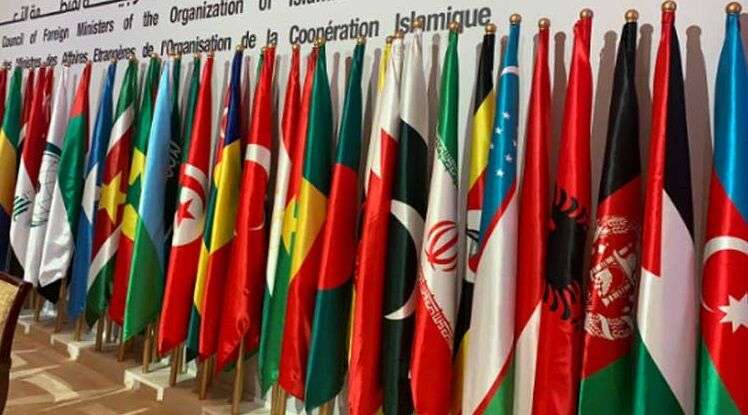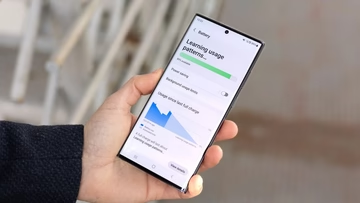
Pakistan’s Role in the OIC: Symbolic or Strategic?
|
Getting your Trinity Audio player ready...
|
The Organization of Islamic Cooperation (OIC) is a group of 57 countries that work together to represent the Muslim world. It is the second-largest organization after the United Nations and focuses on promoting peace, unity, and cooperation among Muslim-majority countries. Pakistan, as a founding member of the OIC, has always played a big role in it. But is Pakistan’s role just symbolic, meaning it’s more about showing pride and unity, or is it strategic, meaning it helps Pakistan achieve important goals like security, economic growth, and influence? This article will explore Pakistan’s role in the OIC in simple English, with the latest updates, to help Pakistani readers understand what Pakistan gains from being part of this group.
What is the OIC?
Before we talk about Pakistan’s role, let’s understand what the OIC is. The OIC was created in 1969 after a fire damaged the Al-Aqsa Mosque in Jerusalem, a holy site for Muslims. Muslim leaders came together in Rabat, Morocco, to form the OIC to protect Muslim interests and promote unity. The OIC’s headquarters are in Jeddah, Saudi Arabia, and its current leader, called the Secretary-General, is Hissein Brahim Taha.
The OIC works on many issues, like:
- Supporting Muslim causes, such as the rights of Palestinians.
- Solving conflicts between member countries.
- Promoting trade, science, and technology among Muslim countries.
- Fighting Islamophobia (hatred or fear of Muslims) worldwide.
- Helping Muslim minorities in non-Muslim countries.
Pakistan was one of the first countries to join the OIC, and it has been active in it for over 50 years. But why does Pakistan care so much about the OIC, and what does it get out of it?
Pakistan’s History with the OIC
Pakistan was created in 1947 as a homeland for Muslims of the Indian subcontinent. The idea of uniting Muslims, called pan-Islamism, was important to Pakistan’s founders, like Muhammad Ali Jinnah and leaders of the All-India Muslim League. They believed Pakistan should work with other Muslim countries to be strong and respected globally. This is why Pakistan helped start the OIC in 1969.
Since then, Pakistan has hosted many important OIC meetings:
- 1970: The Second Islamic Conference of Foreign Ministers in Karachi.
- 1974: The Second OIC Summit in Lahore, a big event where Pakistan recognized Bangladesh as a separate country after pressure from other Muslim leaders.
- 1997: An Extraordinary OIC Summit in Islamabad to celebrate Pakistan’s 50th anniversary.
- 2022: The 48th Session of the Council of Foreign Ministers in Islamabad, which was a major event after 15 years and celebrated Pakistan’s 75th independence anniversary.
These events show Pakistan’s commitment to the OIC. But let’s look deeper to see if this role is just for show or if it helps Pakistan in real ways.
Symbolic Role: Pride and Unity
For many Pakistanis, the OIC is a symbol of Muslim unity. Pakistan’s involvement shows that it is a proud Muslim country that cares about the Ummah (the global Muslim community). Here’s why Pakistan’s role can be seen as symbolic:
1. Showing Leadership in the Muslim World
Pakistan is the second-largest OIC member by population (over 220 million people) and the only Muslim country with nuclear weapons. This gives Pakistan a special status. When Pakistan hosts OIC meetings or speaks on issues like Palestine or Kashmir, it shows the world that Pakistan is a leader among Muslim nations. For example, in 2022, when Pakistan hosted the OIC foreign ministers’ meeting, it was a moment of pride for Pakistanis. The event showed Pakistan’s ability to bring Muslim countries together.
2. Supporting Muslim Causes
Pakistan has always used the OIC to support causes important to Muslims. For example:
- Palestine: Pakistan strongly supports the Palestinian people’s right to their own country with East Jerusalem as its capital. In 2023, during an OIC meeting about violence in Gaza, Pakistan called for an end to Israeli actions and supported peace efforts.
- Kashmir: Pakistan has used the OIC to raise the issue of Jammu and Kashmir, a disputed area with India. In 1994, Pakistan helped create the OIC Contact Group on Kashmir to focus on this issue. In 2019, when India changed Kashmir’s special status, Pakistan asked for an emergency OIC meeting, and the OIC supported Pakistan’s position.
These actions make Pakistan look like a champion of Muslim rights, which is important for its image at home and abroad.
3. Constitutional Duty
Pakistan’s Constitution (Article 40) says the government must build strong ties with Muslim countries. Being active in the OIC is a way to follow this rule. It shows Pakistanis that their government is keeping its promise to work with the Muslim world, which is a source of national pride.
4. Cultural and Religious Identity
For many Pakistanis, the OIC represents the idea of a united Muslim world. When Pakistan speaks at OIC meetings or hosts events, it connects with the feelings of ordinary Pakistanis who want their country to stand up for Islam. This is especially important in a country where Islam is a big part of daily life and identity.
Strategic Role: Achieving Real Goals
While the symbolic role is important, Pakistan’s involvement in the OIC is also strategic. This means Pakistan uses the OIC to achieve practical goals like security, economic growth, and influence in the world. Let’s look at how Pakistan does this:
1. Support on Kashmir
The Kashmir issue is a major part of Pakistan’s foreign policy. Pakistan believes Jammu and Kashmir should be part of Pakistan or at least have the right to decide its future. The OIC has been a key platform for Pakistan to gain support for this cause. For example:
- In 2000, at the 9th OIC Summit in Doha, leaders passed a resolution condemning human rights violations in Kashmir and supporting the Kashmiri people’s right to self-determination.
- In August 2019, after India revoked Kashmir’s special status, Pakistan called for an emergency OIC meeting. The OIC expressed “deep concern” and supported dialogue between Pakistan and India.
- In 2022, during the OIC meeting in Islamabad, Pakistan again raised the Kashmir issue, and the OIC reaffirmed its support.
This support from 57 countries strengthens Pakistan’s position against India on the global stage. It also helps Pakistan counter India’s influence, especially when countries like the UAE invited India to OIC meetings as a guest in 2019, which Pakistan opposed strongly.
2. Economic Benefits
The OIC is not just about politics; it also promotes trade and economic cooperation. Pakistan has used the OIC to build economic ties with Muslim countries, especially rich ones like Saudi Arabia, the UAE, and Qatar. For example:
- Islamic Development Bank (IDB): This OIC-linked bank, based in Jeddah, has funded many projects in Pakistan, like roads, schools, and hospitals. Pakistani professionals have helped develop the IDB, showing Pakistan’s expertise.
- Islamic Chamber of Commerce, Industry and Agriculture (ICCIA): Based in Karachi, this OIC body helps Pakistan connect with businesses in other Muslim countries to increase trade.
- COMSTECH: The OIC’s Standing Committee on Scientific and Technological Cooperation is in Islamabad. It helps Pakistan work with other countries on science and technology projects.
These institutions bring money, jobs, and knowledge to Pakistan, helping its economy grow. For example, Saudi Arabia and the UAE send billions of dollars to Pakistan as aid and investments, partly because of their shared OIC membership.
3. Military and Security Cooperation
Pakistan has strong military ties with many OIC countries, which it strengthens through the OIC. For example:
- Pakistan has trained over 1,900 naval officers from countries like Saudi Arabia, UAE, Qatar, and Oman at its Naval Academy.
- Pakistan’s Army Service Corps School and Military College of Signals have trained hundreds of officers from OIC countries like Bangladesh, Bosnia, Maldives, and Turkey.
- Pakistan has supported OIC members in conflicts, like helping Jordan in the past and criticizing Israel’s actions in Palestine.
These ties make Pakistan’s military stronger and more respected. They also help Pakistan get support from OIC countries during tensions with India or other neighbors.
4. Fighting Islamophobia
Pakistan has been a leader in the OIC’s efforts to fight Islamophobia. In 2022, Pakistan, on behalf of the OIC, got the United Nations to declare March 15 as the “International Day to Combat Islamophobia.” This was a big achievement because it showed Pakistan’s ability to influence global policies. Fighting Islamophobia helps protect Pakistani workers and students living abroad, who sometimes face discrimination.
5. Mediation and Diplomacy
Pakistan has used the OIC to play a bigger role in solving problems in the Muslim world. For example:
- In 2023, Pakistan spoke at OIC meetings about stopping violence in Gaza and supporting Palestinian rights.
- Pakistan has supported OIC efforts to help Rohingya Muslims in Myanmar and Muslims in other non-Muslim countries.
By doing this, Pakistan shows it is a responsible and influential country, which helps it build stronger ties with powerful OIC members like Saudi Arabia and Turkey.
6. Hosting OIC Institutions
Pakistan is home to two important OIC bodies:
- COMSTECH in Islamabad, which focuses on science and technology.
- ICCIA in Karachi, which promotes trade and business.
These institutions give Pakistan a chance to lead in important areas and attract investment and expertise from other Muslim countries.
Challenges to Pakistan’s Role in the OIC
While Pakistan has gained a lot from the OIC, there are challenges that make its role less effective sometimes:
1. Limited OIC Power
The OIC is often criticized for being a weak organization. It passes many resolutions, but they are not always followed. For example, while the OIC supports Pakistan on Kashmir, it has not been able to force India to change its policies. This makes Pakistan’s efforts in the OIC seem less impactful.
2. Tensions with Other Members
Pakistan has faced disagreements with some OIC members. For example:
- In 2019, when the UAE invited India as a guest to an OIC meeting, Pakistan boycotted the event. This showed that not all OIC members fully support Pakistan’s views.
- Pakistan’s close ties with Saudi Arabia sometimes create tensions with Iran, another OIC member, because of their rivalry.
These disagreements can weaken Pakistan’s influence in the OIC.
3. Focus on Practical Needs
Some Pakistani leaders and experts say the OIC is less important than it used to be. They argue that Pakistan should focus on economic and security ties with countries like China, the US, or Saudi Arabia directly, rather than through the OIC. For example, a former defense minister said in 2017 that Pakistan is becoming more “pragmatic” and less focused on Islamic unity alone.
4. Internal Problems
Pakistan faces many challenges at home, like economic struggles, terrorism, and political instability. These problems make it harder for Pakistan to play a strong role in the OIC. For example, hosting big OIC events costs money, which Pakistan sometimes struggles to afford.
Latest Updates (2023–2025)
Let’s look at what Pakistan has done in the OIC recently to understand if its role is still symbolic or strategic:
1. Support for Palestine (2023)
In October and November 2023, Pakistan was very active in OIC meetings about the Israel-Palestine conflict. During an Extraordinary Meeting of the OIC Executive Committee and a Joint Arab-Islamic Summit, Pakistan called for stopping Israeli violence in Gaza and supported a Palestinian state. This shows Pakistan’s continued use of the OIC to support Muslim causes, which is both symbolic (showing solidarity) and strategic (building ties with Arab countries).
2. Kashmir Issue (2022–2023)
Pakistan has kept the Kashmir issue alive in the OIC. At the 2022 OIC meeting in Islamabad, Pakistan pushed for OIC support on Kashmir, and the OIC reaffirmed its stance against India’s actions. This helps Pakistan diplomatically, as it gets backing from 57 countries.
3. Fighting Islamophobia
Pakistan’s success in getting the UN to declare March 15 as the International Day to Combat Islamophobia in 2022 was a big win. It showed Pakistan’s ability to lead the OIC on global issues. This is strategic because it helps Pakistanis abroad and improves Pakistan’s image as a leader.
4. Hosting OIC Events
The 2022 OIC foreign ministers’ meeting in Islamabad was a major event. It showed Pakistan’s ability to organize big gatherings and strengthened its ties with OIC members. Hosting such events is both symbolic (showing pride) and strategic (building diplomatic and economic ties).
5. Economic and Scientific Cooperation
Pakistan continues to benefit from OIC institutions like COMSTECH and ICCIA. For example, COMSTECH has helped Pakistan work on science projects with countries like Turkey and Malaysia, while ICCIA has boosted trade with Gulf countries. These efforts are strategic because they bring money and knowledge to Pakistan.
Is Pakistan’s Role Symbolic or Strategic?
So, is Pakistan’s role in the OIC more about pride and unity (symbolic) or about achieving real goals (strategic)? The answer is both, but it leans more toward strategic in recent years.
Why It’s Symbolic
Pakistan’s involvement in the OIC makes Pakistanis proud. It shows that Pakistan is a strong Muslim country that cares about issues like Palestine and Kashmir. Hosting OIC meetings, speaking for Muslim rights, and following the Constitution’s call to work with Muslim countries all connect with the feelings of ordinary Pakistanis. This is important because it helps the government gain support at home.
Why It’s Strategic
Pakistan has used the OIC smartly to achieve big goals:
- Kashmir: The OIC’s support gives Pakistan a stronger voice against India.
- Economic Growth: Ties with rich OIC countries like Saudi Arabia and the UAE bring money and jobs.
- Military Strength: Training officers from OIC countries and building defense ties make Pakistan’s military stronger.
- Global Influence: Leading on issues like Islamophobia and Palestine makes Pakistan respected worldwide.
In recent years (2022–2025), Pakistan has focused more on these practical benefits. For example, hosting the 2022 OIC meeting, pushing for Kashmir and Palestine, and working through COMSTECH and ICCIA show that Pakistan sees the OIC as a tool to achieve real results, not just to look good.
Balancing Both Roles
Pakistan’s leaders know that the OIC is both a stage to show pride and a platform to gain benefits. They use it to rally Pakistanis around the idea of Muslim unity while also securing economic, military, and diplomatic support. However, challenges like the OIC’s limited power and Pakistan’s internal problems mean Pakistan must keep working hard to make its role more strategic.
What Can Pakistan Do Better?
To make its role in the OIC even stronger, Pakistan can:
- Push for Stronger OIC Action: Pakistan should work with other powerful members like Saudi Arabia and Turkey to make the OIC’s resolutions more effective, especially on Kashmir and Palestine.
- Focus on Economic Ties: Pakistan should use ICCIA and other OIC bodies to increase trade with countries like Malaysia, Indonesia, and Qatar.
- Invest in Science and Technology: Through COMSTECH, Pakistan can lead projects that bring new technology to the Muslim world, which will also help Pakistan’s economy.
- Solve Internal Problems: By improving its economy and security, Pakistan can play a bigger role in the OIC without being held back by domestic issues.
- Build Unity in the OIC: Pakistan should try to reduce tensions between members like Saudi Arabia and Iran to make the OIC stronger.
Conclusion
Pakistan’s role in the OIC is a mix of symbolic pride and Strategic Planning. The symbolic part makes Pakistanis proud by showing their country as a leader of the Muslim world. The strategic part helps Pakistan gain support on Kashmir, build economic and military ties, and increase its global influence. Recent updates from 2022 to 2025 show that Pakistan is focusing more on the strategic side, using the OIC to achieve practical goals like economic growth and diplomatic support. However, challenges like the OIC’s limited power and Pakistan’s internal issues mean there is still work to do.
For Pakistani readers, the OIC is a reminder of Pakistan’s important place in the Muslim world. It’s not just about speeches and meetings—it’s about using this platform to make Pakistan stronger, safer, and more prosperous. By balancing pride with practical goals, Pakistan can continue to shine in the OIC and beyond.



